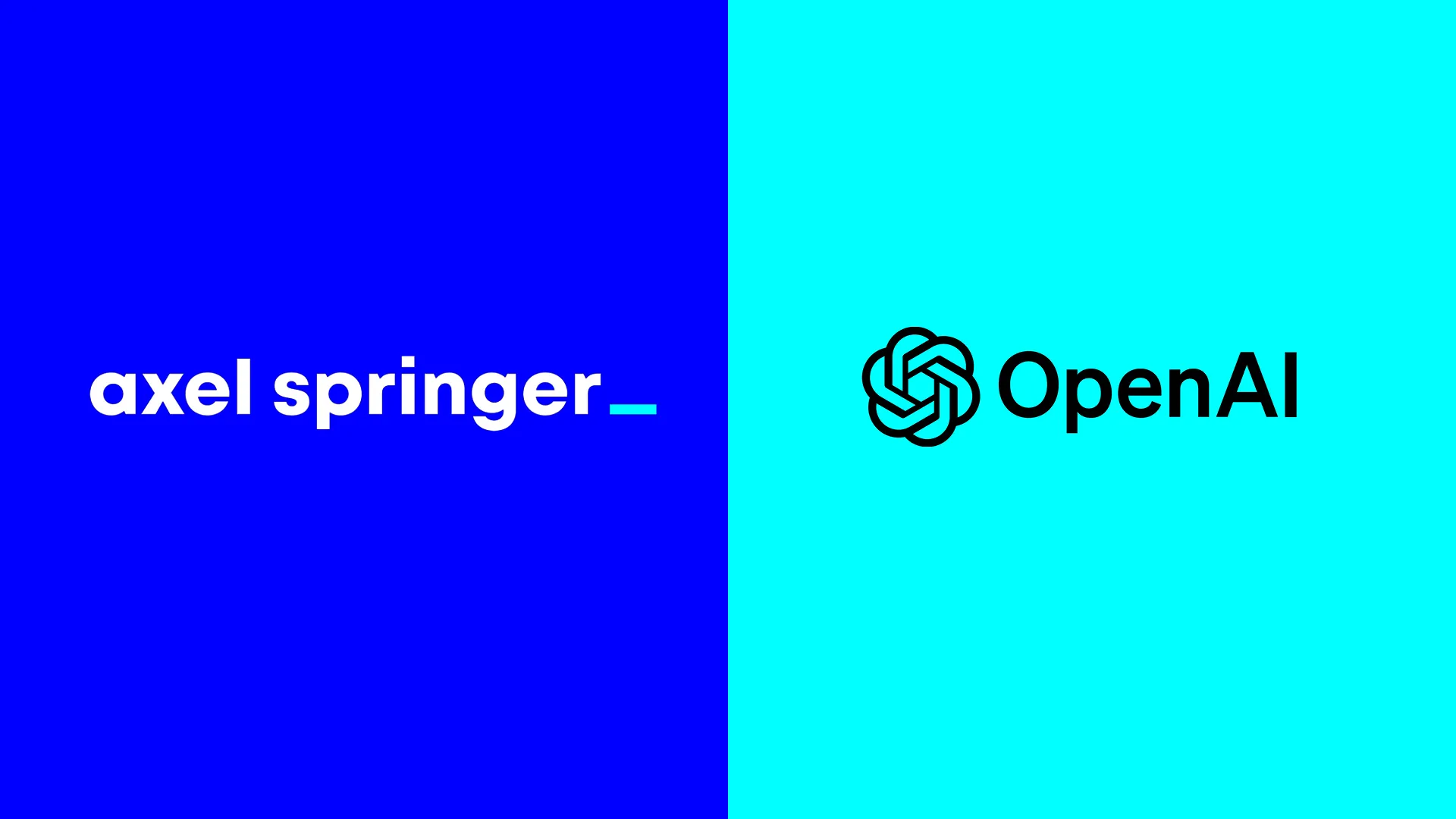Leading artificial intelligence firm OpenAI has joined forces with Axel Springer—the publisher behind dozens of prominent media outlets from Politico to Business Insider to Rolling Stone—to take the “business model of journalism to the next level,” which is marked by “AI empowered journalism.”
Axel Springer CEO Mathias Döpfner said it was a “first of its kind” collaboration in which ChatGPT users can access summaries of select news content from Axel Springer's diverse media portfolio—including otherwise paid content. The publisher will also use GPT-4 to recommend content and respond to user queries.
In return OpenAI gets to use Axel Springer’s content to train its new AI models.
The announcement claims the integration will ensure transparency and deeper engagement by providing attribution and links to full articles.
“We are deeply committed to working with publishers and creators around the world and ensuring they benefit from advanced AI technology and new revenue models,” said Brad Lightcap, COO of OpenAI, who said the setup benefits both companies and the public. which will get “new ways to access quality, real-time news content through our AI tools.”
The intersection of AI and journalism has challenges, including the perceived lack of transparency and concerns about misinformation. These issues are crystallized by a study from Ipsos Global, which found that 56% of Americans and 64% of Canadians believe AI will exacerbate misinformation, with 74% globally thinking AI makes it easier to create realistic fake news.
The potential for AI to combat misinformation is also being explored, as seen with tools like AI Fact Checker and Microsoft's integration of GPT-4 into its Edge browser. Some of these tools have shown proficiency in debunking false information.
The Associated Press has responded to these concerns by issuing guidelines restricting the use of generative AI in news reporting, emphasizing the importance of human oversight.
With forecasts of an increasingly automated future, entrusting the hefty responsibility of news gathering and dissemination to algorithms may be inevitable—but warrants careful reconsideration and human oversight.
Edited by Ryan Ozawa.

